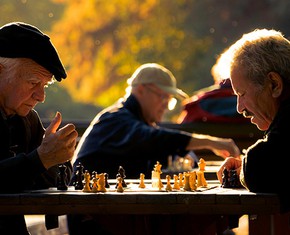The views expressed in our content reflect individual perspectives and do not represent the authoritative views of the Baha'i Faith.
Humble: Having or showing a consciousness of one’s shortcomings; modest. – Webster’s Dictionary
Nobility does not mean pride—instead, it means humility:
All religions teach that we should love one another; that we should seek out our own shortcomings before we presume to condemn the faults of others, that we must not consider ourselves superior to our neighbours! – Abdu’l-Baha, Paris Talks, p. 148.
To be approved of God alone should be one’s aim. And has thou realized thy own shortcomings? One must always search for his own shortcomings so that he may repent at the threshold of Oneness and become protected and guarded; otherwise, pride and haughtiness will take possession of one’s heart and this will cause deprivation of the bounties of the Court of Singleness. – Abdu’l-Baha, Star of the West, Volume 4, p. 185.
The Baha’i teachings call us to humility. Becoming humble, they say, allows us to grow nearer to God:
To be humble in your attitude towards God, to be constant in prayer to Him, so as to grow daily nearer to God. Today the real king is the soul who serves all, and dear is he who exhibits humility toward all humanity. The humbler and lowlier a person shall be the nearer to and more acceptable at the threshold of God is he. – Abdu’l-Baha, Star of the West, Volume 4, p. 194.
Humility happens, as the Baha’i teachings suggest, when we become aware of our own shortcomings. That awareness requires two things: a true example of a noble, spiritual life; and a regular practice of meditative self-evaluation. First, we need to have a benchmark, a reliable way of assessing and measuring our inner virtues or the lack of them, which we trust and rely upon. Second, we need to find a consistent spiritual practice of prayer, meditation and inner reflection that allows us to review our own thoughts and actions, and come to clear, factual conclusions about the changes that will refine our characters.
Many of us get our examples of how to live a good life from the people we know and love. Some graduate to a deeper, more universal set of exemplars, and rely on saintly, accomplished and spiritually-mature role models who have influenced their thoughts and actions. But most people rely on the spiritual traditions and their prophets and messengers for inspiration and guidance. They follow Christ or Buddha or Krishna or Moses or Muhammad or the founders of their indigenous belief systems, believing that those manifestations of Godly grace give us the best examples to aspire to and emulate. The founders and prophets of the great global Faiths gave us their teachings to refine our souls and bring love and compassion into our hearts. Every one of those great educators taught humility:
All religions teach that we should love one another; that we should seek out our own shortcomings before we presume to condemn the faults of others, that we must not consider ourselves superior to our neighbours! We must be careful not to exalt ourselves lest we be humiliated.
Who are we that we should judge? How shall we know who, in the sight of God, is the most upright man? God’s thoughts are not like our thoughts! How many men who have seemed saint-like to their friends have fallen into the greatest humiliation. Think of Judas Iscariot; he began well, but remember his end! On the other hand, Paul, the Apostle, was in his early life an enemy of Christ, whilst later he became His most faithful servant. How then can we flatter ourselves and despise others?
Let us therefore be humble, without prejudices, preferring others’ good to our own! Let us never say, “I am a believer but he is an infidel”, “I am near to God, whilst he is an outcast.” We can never know what will be the final judgment! Therefore let us help all who are in need of any kind of assistance.
Let us teach the ignorant, and take care of the young child until he grows to maturity. When we find a person fallen into the depths of misery or sin we must be kind to him, take him by the hand, help him to regain his footing, his strength; we must guide him with love and tenderness, treat him as a friend not as an enemy. We have no right to look upon any of our fellow-mortals as evil. – Abdu’l-Baha, Paris Talks, pp. 147-148.
The Baha’i teachings, then, ask us to confine our judgments to ourselves, and to refrain from judging others:
It is my hope that you may consider this matter, that you may search out your own imperfections and not think of the imperfections of anybody else. Strive with all your power to be free from imperfections. Heedless souls are always seeking faults in others. What can the hypocrite know of others’ faults when he is blind to his own? …As long as a man does not find his own faults, he can never become perfect. Nothing is more fruitful for man than the knowledge of his own shortcomings. – Abdu’l-Baha, The Promulgation of Universal Peace, p. 244.
Whosoever desires to walk in the path of the Kingdom, so that he may reach the court of the Almighty, he must be a true servant. The path of God cannot be compared with the paths of men. The humbler man is in the path of God the more exalted is he; the greater his meekness and submissiveness the more beloved is he; the more he is surrounded with tests and trials the vaster the tranquillity and composure of his spirit. Nay, rather, in the path of God humility is honour, trouble is rest, affliction is bestowal, poverty is wealth, indigence is sovereignty and lowliness is nobility. Truly, I say, whosoever is the real servant of the believers of God is their assistant and helper. We must all walk in this divine path. – Abdu’l-Baha, Star of the West, Volume 7, p. 103.
Next: Want to be Noble? Tell the Truth
















Comments
Sign in or create an account
Continue with Googleor